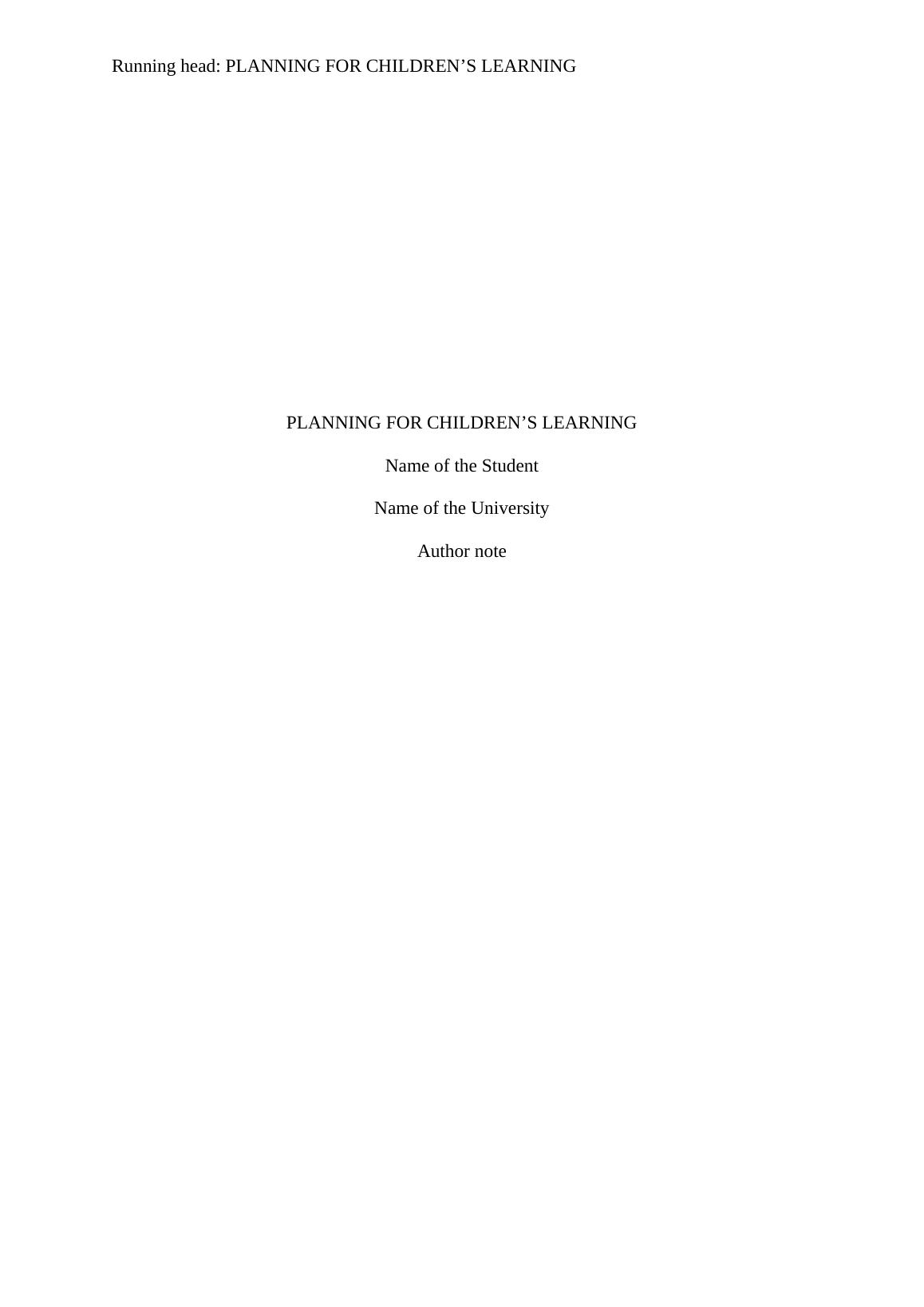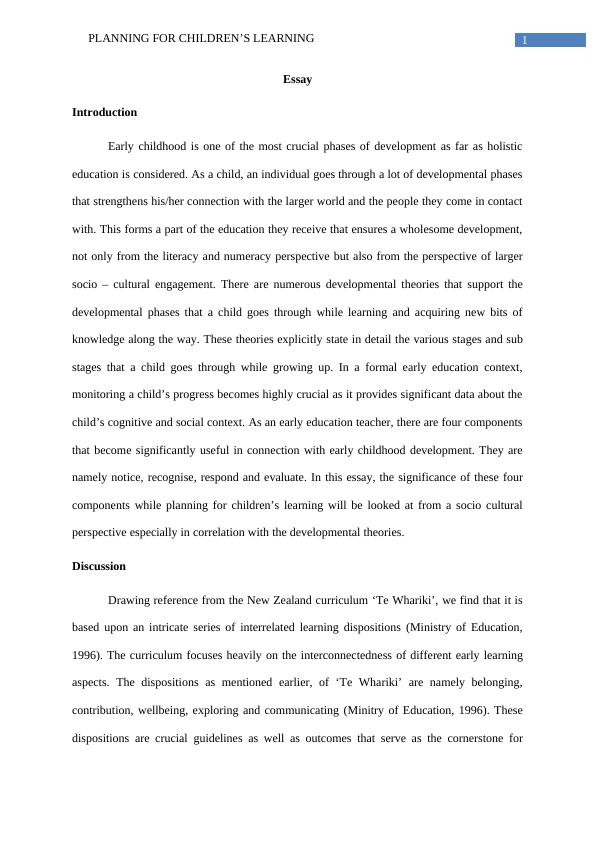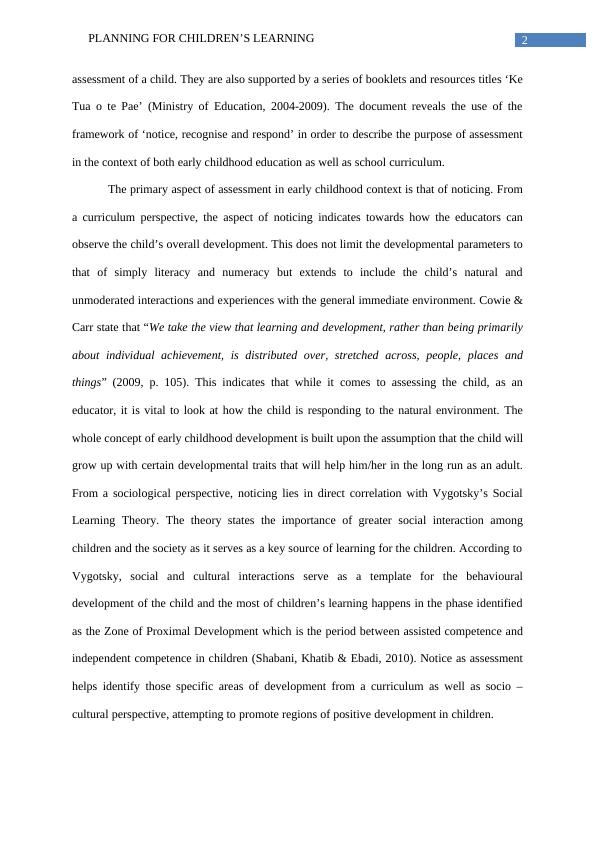Planning for Children's Learning
Explain the importance of planning components for children's learning from a socio-cultural perspective and discuss the role of early childhood teachers in providing an optimal learning environment for infants, toddlers, or young children.
10 Pages2625 Words67 Views
Added on 2023-01-05
About This Document
This essay discusses the significance of notice, recognise, respond, and evaluate components in planning for children's learning from a socio-cultural perspective.
Planning for Children's Learning
Explain the importance of planning components for children's learning from a socio-cultural perspective and discuss the role of early childhood teachers in providing an optimal learning environment for infants, toddlers, or young children.
Added on 2023-01-05
ShareRelated Documents
End of preview
Want to access all the pages? Upload your documents or become a member.
Assessment on Early Childhood Education and Care
|12
|2798
|106
Role of Children Educators in Te Wahiti 9TE WARIKI
|11
|1930
|157
Importance of Observation, Analysis, Planning and Evaluation in Children's Learning from a Socio-Cultural Perspective
|7
|1561
|281
Early Childhood Mathematics/Science: R-2
|14
|2582
|4
(PDF) The Australian Early Years Learning Framework
|11
|2946
|312
Inclusive Early Childhood Education | Report
|11
|2912
|22



